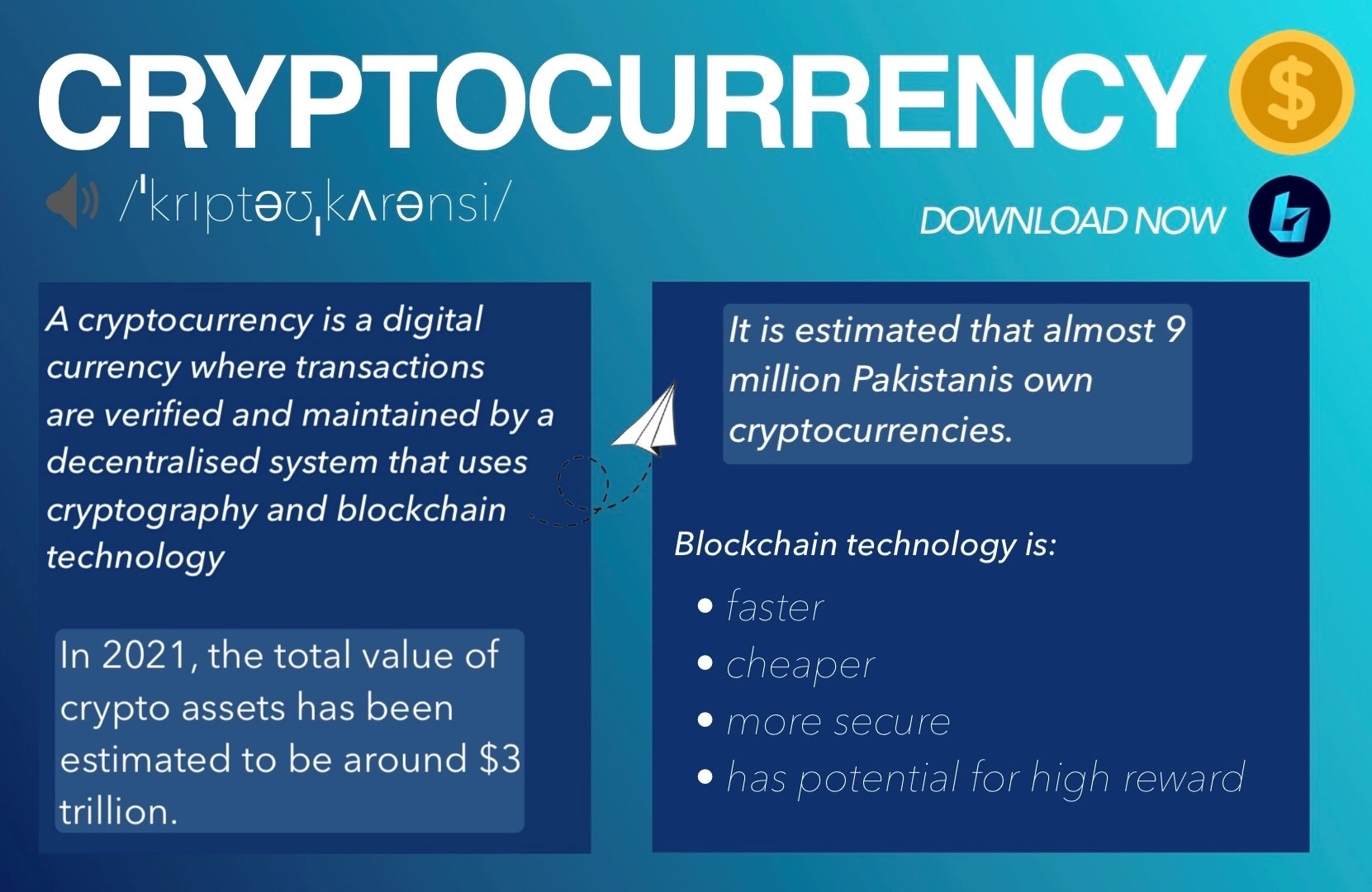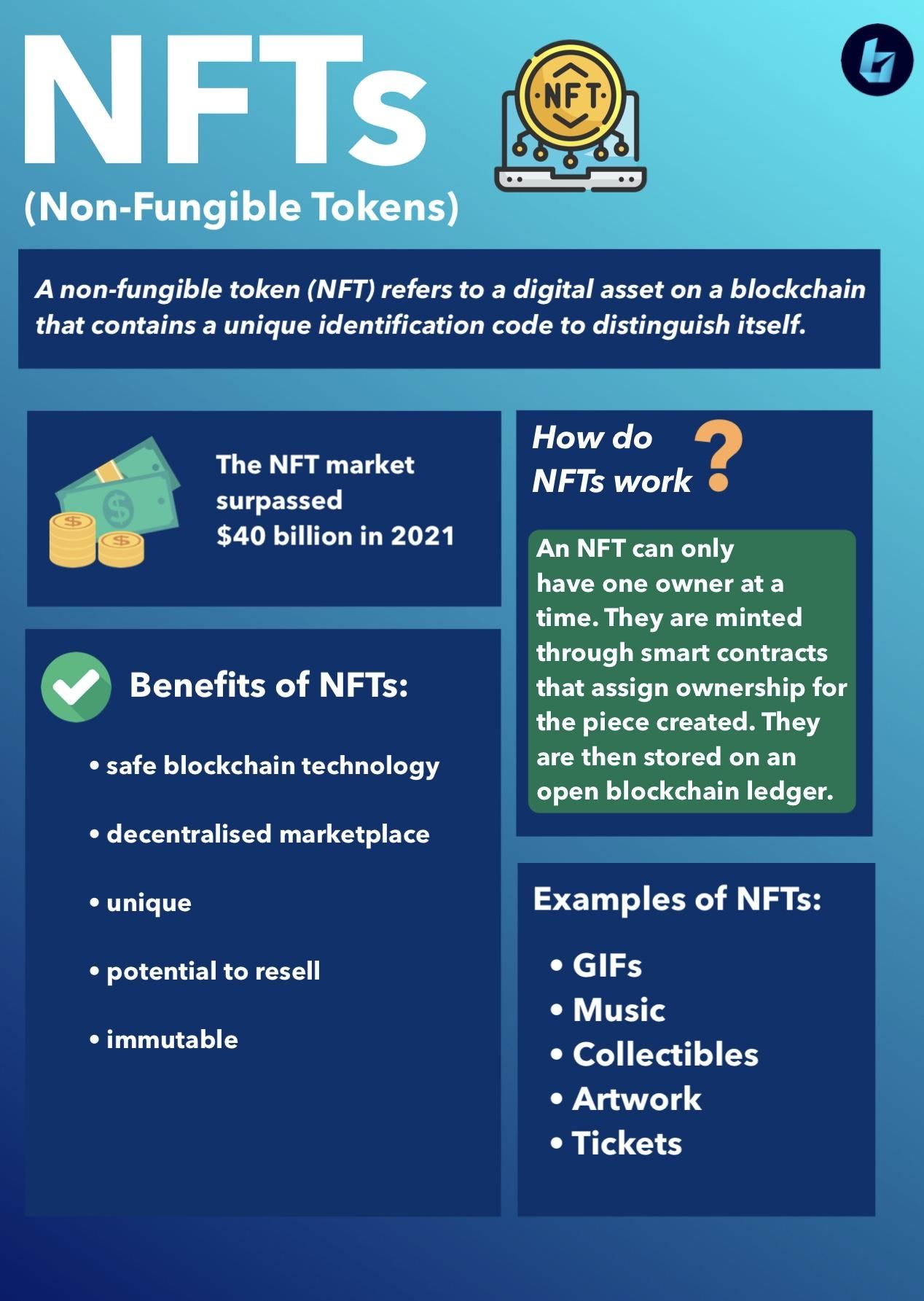Cryptocurrencies and NFTs in Pakistan
Recently, cryptocurrencies and NFTs have been
a hot topic. The total value of cryptocurrency assets is estimated to be at an
astonishing $3 trillion (1), whilst in 2021 the NFT market saw over
$23bn in trading volume (2). They have proven to be controversial,
with countries such as Pakistan and China banning crypto-related activities.
However, despite its prevalence, there is much confusion about what they
actually are.
What is
Cryptocurrency?
Quite simply put, cryptocurrencies refer to
digital assets that are monitored by a peer-to-peer network called blockchain.
The support by blockchain allows an almost impenetrable record of transactions
to keep track of who owns what. The name cryptocurrency comes from being
secured by cryptographic algorithms. This makes it nearly impossible for
counterfeit transactions or double spending, making it an ideal medium of
exchange for security. Examples of popular cryptocurrencies include Bitcoin and
Litecoin.
The decentralised structure of crypto allows
them to operate without central authority such as banks or governments,
essentially by theory, rendering them immune to government intervention.
Cryptocurrencies are used for a variety of
reasons, as it has its significant advantages:
1)
Short
settlement times- faster money transfers
2)
Low fees
3)
Blockchain
technologies underlying cryptocurrencies render it a secure medium of exchange;
decentralised systems do not collapse at a single point of failure
4)
Potential for
high rewards; at the cost of its high risk.

What is
an NFT?
A non-fungible token (NFT) refers to a digital
asset on a blockchain that contains a unique identification code to distinguish
itself. NFTs are a unique concept, with their main purpose being a way to
represent individual's assets. For example, an NFT can represent artwork or
real estate.
NFTs render the purchase, selling, and trading
of assets more efficient, by reducing probabilities of fraud, and its
blockchain technologies prevent these unique tokens from being replicated.
In 2021, the NFT market, which has been centered
around collectibles was huge. In 2021, a digital artist sold a group of NFTs
for almost $70 million. By August 2021, there were almost 280,000 unique buyers
and sellers of NFTs (3).

The ban
of cryptocurrencies in Pakistan
As you can tell, there has been tremendous
growth in crypto-related activities in the past few years, and it is only
growing exponentially. Despite this, it has not stopped major economies from
banning the trade of crypto, such as China and Saudi Arabia. In 2018, the State
Bank of Pakistan (SBP) issued a circular prohibiting banks from dealing with
cryptocurrency exchanges.
However, despite these complications and
roadblocks, the cryptocurrency market is thriving, especially with Pakistanis.
It is estimated that over 9 million people in Pakistan own cryptocurrencies, as
well as owning $20bn worth of cryptocurrencies (4).
Despite the bans imposed by the SBP,
Pakistanis have found other ways to enter the world of cryptos. A large handful
of investors have made use of external bank transfer apps in order to trade
cryptocurrencies. A key way Pakistanis were able to invest in cryptos meant
they could not invest using PKR. First, they are required to transfer to
someone in rupees, and then buy a cryptocurrency. However, the rate depends on
the exchange rate at the time, which brings up a problem; the smaller a
purchase, the more expensive it may be, as the amount of currency bought can
make a difference. Typically, Pakistanis use the USDP as a way to invest in
cryptocurrencies.
[1] https://time.com/6115300/cryptocurrency-value-3-trillion/
[2] https://www.forbes.com/sites/ninabambysheva/2021/12/23/nfts-generated-over-23-billion-in-trading-volume-in-2021/
[3] https://www.statista.com/statistics/1266322/nft-user-number/
[4] https://www.arabnews.com/node/1993221/business-economy